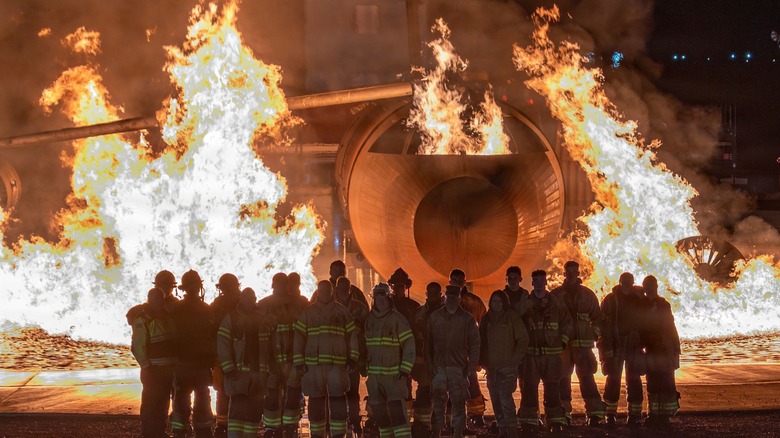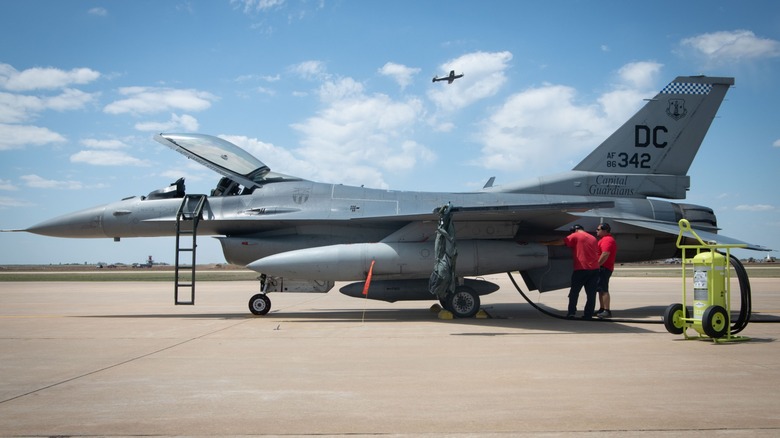Bad Fuel And Military Aircraft Don't Mix - Here's What Can Happen
When it comes time to refuel military aircraft, it's not as simple as taxiing to the local gas station and topping off the tank. Military vehicles don't run on gasoline, and even Humvees, for example, don't use typical fuels. Instead, the vast majority of American military vehicles, including aircraft, use JP-8, which is a type of kerosene (and not a diesel fuel). JP-8 uses kerosene as a base and is a mixture of several products, including a corrosion inhibitor and additives used to ward off icing.
Like anything that uses a combustible fuel source, bad things can happen when improperly made or maintained fuel is used to gas up an aircraft. Unlike a car, the results won't be as benign as stalling while out on a drive. Instead, planes can stall and fall out of the sky if there's a problem with their fuel. Safe fuel is critical for military aviation, and nobody wants to be responsible for messing up fueling and thereby destroying a multi-million dollar aircraft, not to mention the potential fatalities.
So-called "bad fuel" is truly terrible and can be a death sentence for an aircraft and its crew. It can result in engine failure, damage that ultimately leads to failure, reduced performance, and more, making fuel safety of paramount importance to the military. In October 2025, a U.S. Navy helicopter and fighter jet crashed into the South China Sea in separate incidents only 30 minutes apart. While the cause wasn't immediately apparent, bad fuel seemed a possible culprit.
The dangers of using bad fuel in military aviation
JP-8 is a highly refined mixture of kerosene and numerous chemicals designed to maximize its efficiency, and it's a proven fuel. Contamination is always a concern, so steps are taken throughout the refueling process to ensure bad gas doesn't make it to an airplane's fuel tank. Contaminants can include microbes, water, particles, and more, all of which pose dangers to aircraft. Unfortunately, accidents do happen, and when they do, it can be catastrophic.
When an aircraft's fuel is contaminated, it can result in poor energy production due to insufficient combustion; when this happens, the engine could lose all power. On top of that, contaminated fuel can also clog fuel lines, which can result in fuel starvation, a significant threat to aircraft that can result in stalls and crashes. One way this can happen is if water enters the fuel through condensation or mishandling; when it freezes, which happens at high altitude, the clogged lines can bring down a plane.
Mishandled and contaminated fuel doesn't always cause crashes, but it will degrade engine parts over time regardless. Good maintenance crews often catch these sorts of things, ensuring widespread safety is observed for military aircraft, as fuel issues are almost always preventable. Still, not every issue is detected, and accidents can occur. Proper handling of fuel is a huge mitigating factor in these issues, so as long as everyone does their part, fuel-related accidents remain the exception, not the norm.

